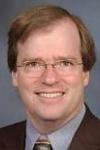非常抱歉,
你要访问的页面不存在,
非常抱歉,
你要访问的页面不存在,
非常抱歉,
你要访问的页面不存在,
验证码:

职称:Allen Forte Professor of Music Theory
所属学校:Yale University
所属院系:music
所属专业:Music, General
联系方式:203-436-5210
My chief research interest is in tonal theory, especially at historical margins of the common-practice era. A dissertation on the music of Max Reger was the springboard for Harmonic Function in Chromatic Music (Chicago, 1994), which offered a theory and some analytic tools based on late nineteenth-century ideas on harmony, chiefly those of Hugo Riemann. (I find the history of music theory to be an especially rewarding field of study.) Further developments of this project were undertaken in “Supplement to the Theory of Augmented Sixth Chords” and “Nonconformist Notions of Nineteenth–Century Enharmonicism.” Lately, I’ve (re)turned to the study of 17th- and 18th-century tonality in “Rosalia, Arcangelo, and Aloysius: A Genealogy of the Sequence. My current work in this area of interest is on contemporary tonal music, especially that of the 20th century. I am investigating ways in which a variety of composers—among whom are notables such as Hindemith, Shosatkovich, Prokofiev, Martinu, Vaughan Williams, Britten, Barber, and Copland—maintained, adapted, and developed traditional compositional materials. A conference paper, “Dissonant Tonics and Post-Tonal Tonality,” currently being prepared for publication, is one result. Other focused projects from this study include an examination of Paul Hindemith’s music theories, an investigation into implied claims of Jazz theory about tonality, and various matters relating post common-practice tonality to psychoacoustics and music cognition. All of these topics will culminate in a book, Pieces of Tradition: An Analysis of Contemporary Tonality. I also have a stake in the analysis of pop music, chiefly from the 1960s and 70s, and specifically the music of The Beach Boys. I’ve given a few conference papers in this area, published an essay, “After Sundown: The Beach Boys’ Experimental Music” in the collection Understanding Rock, and appeared in a Don Was documentary on Brian Wilson, I Just Wasn’t Made for These Times (1995). A long-standing interest that I look forward to working on in the future is musical rhetoric, especially on techniques of proposition and argument and their realization in performance. At both Yale and at the University of Rochester’s Eastman School of Music, I’ve taught graduate courses in chromatic music and analysis; tonality after the common practice; analysis of rock music; the pedagogy of music theory; and the writing of music theory and analysis. I’ve advised dissertations on common-practice tonal and contemporary tonal musics, and I would be happy to continue supervising research in these areas as well as in the history of music theory, popular musics, rhetorical-narrative analysis, and analysis of sacred music. My primary instrument is the organ, which I studied with Herbert Nanney at Stanford and Robert Baker at Yale. In Rochester, I was assistant to David Craighead at St. Paul’s Episcopal church for twelve years. Among my other musical experiences is a stint as an arranger and bass-pan player in the steel-drum band Calliope’s Children.
My chief research interest is in tonal theory, especially at historical margins of the common-practice era. A dissertation on the music of Max Reger was the springboard for Harmonic Function in Chromatic Music (Chicago, 1994), which offered a theory and some analytic tools based on late nineteenth-century ideas on harmony, chiefly those of Hugo Riemann. (I find the history of music theory to be an especially rewarding field of study.) Further developments of this project were undertaken in “Supplement to the Theory of Augmented Sixth Chords” and “Nonconformist Notions of Nineteenth–Century Enharmonicism.” Lately, I’ve (re)turned to the study of 17th- and 18th-century tonality in “Rosalia, Arcangelo, and Aloysius: A Genealogy of the Sequence. My current work in this area of interest is on contemporary tonal music, especially that of the 20th century. I am investigating ways in which a variety of composers—among whom are notables such as Hindemith, Shosatkovich, Prokofiev, Martinu, Vaughan Williams, Britten, Barber, and Copland—maintained, adapted, and developed traditional compositional materials. A conference paper, “Dissonant Tonics and Post-Tonal Tonality,” currently being prepared for publication, is one result. Other focused projects from this study include an examination of Paul Hindemith’s music theories, an investigation into implied claims of Jazz theory about tonality, and various matters relating post common-practice tonality to psychoacoustics and music cognition. All of these topics will culminate in a book, Pieces of Tradition: An Analysis of Contemporary Tonality. I also have a stake in the analysis of pop music, chiefly from the 1960s and 70s, and specifically the music of The Beach Boys. I’ve given a few conference papers in this area, published an essay, “After Sundown: The Beach Boys’ Experimental Music” in the collection Understanding Rock, and appeared in a Don Was documentary on Brian Wilson, I Just Wasn’t Made for These Times (1995). A long-standing interest that I look forward to working on in the future is musical rhetoric, especially on techniques of proposition and argument and their realization in performance. At both Yale and at the University of Rochester’s Eastman School of Music, I’ve taught graduate courses in chromatic music and analysis; tonality after the common practice; analysis of rock music; the pedagogy of music theory; and the writing of music theory and analysis. I’ve advised dissertations on common-practice tonal and contemporary tonal musics, and I would be happy to continue supervising research in these areas as well as in the history of music theory, popular musics, rhetorical-narrative analysis, and analysis of sacred music. My primary instrument is the organ, which I studied with Herbert Nanney at Stanford and Robert Baker at Yale. In Rochester, I was assistant to David Craighead at St. Paul’s Episcopal church for twelve years. Among my other musical experiences is a stint as an arranger and bass-pan player in the steel-drum band Calliope’s Children.